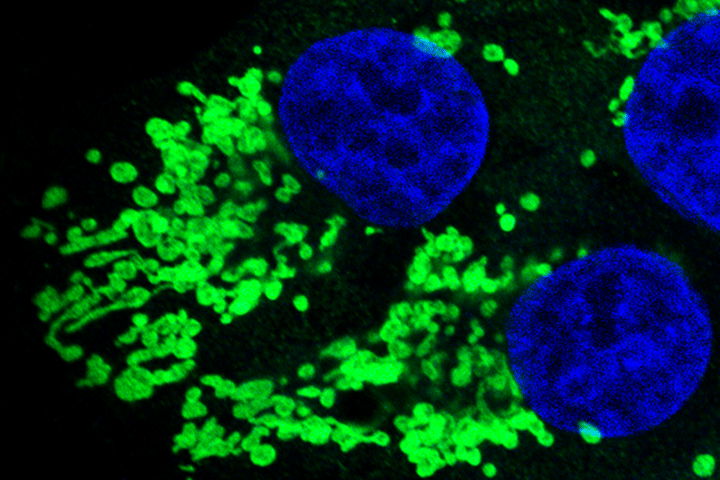Immunology Researchers Solve a Mystery of Metastasis

For those who are eligible, surgery presents the greatest hope of beating confined cases of pancreatic cancer before its deadly spread to other organs.
But for many, the cancer returns, often presenting itself in the liver or other organs. A recent discovery by an immunologist’s lab may have provided a piece of the puzzle that has perplexed doctors for years.
While investigating the ability of mice immunized against pancreatic cancer cells to prevent the development of liver metastases, Arnaud Pommier and physician-scientist Douglas Fearon discovered the immune system also prevented the outgrowth of dormant cancer cells in the livers.
How Cancer Metastasizes
Fearon’s laboratory had previously found that metabolic stress can elevate levels of cortisol (the stress hormone) in mice with pancreatic cancer, thus blocking otherwise effective immunotherapy. Fearon wondered if stress events, such as surgery, could trigger these ticking time bombs to detonate. If so, might there be interventions to prevent them from exploding into full-blown metastasis?
In a paper to be published in Science, the Fearon lab presents studies that may explain the phenomenon of disseminated cancer cells (DCCs) and how they might be activated.
Fearon, a Distinguished Scholar of the Lustgarten Foundation who conducts his research at Cold Spring Harbor Laboratory and the Meyer Cancer Center of Weill Cornell Medicine in New York City, had conducted a study in which half of a cohort of mice were immunized against cancer. Pancreatic ductal carcinoma cells were then injected into their portal circulation, which is the route pancreatic cancer cells would travel to spread into the liver during metastasis.
Within two weeks, the nonimmunized mice had developed cancer, while the immunized mice had no obvious evidence of it. No surprises there. However, when the scientists removed the livers of the “cancer-free” mice, they discovered more than 100 individual cancer cells inside. The cells may have escaped detection from the immune system because they lacked certain protein markers (MHC1 and CK19) that killer T cells home in on.
The cells weren’t growing, but they weren’t being killed, either. The immune systems of the mice seemed to be keeping them in a sort of suspended animation, where they weren’t causing any problems. But there was certainly a potential for that to change. And sure enough, when the scientists removed T cells from the mice, some of the dormant disseminated cancer cells grew into cancerous lesions.
Elevated levels of cortisol, as may occur during times of metabolic stress following surgical removal of the primary pancreatic cancer, would have the same effect as removal of T cells. This leads to the question of whether the surgical procedure itself, while clearly lifesaving for some patients, might allow metastatic disease to occur in other patients.
Stress and the Immune System
Fearon’s background in autoimmunity disorders led him to investigate the relationship between these cortisol levels and immune suppression. He already knew that corticosteroid drugs like prednisone, for instance, caused immunosuppression. So he tested mice again, and found that the immune response to several type of tumors, including pancreatic tumors, was extremely sensitive to cortisol levels. Mice—and humans—experience natural daily fluctuations in cortisol levels. By simply maintaining cortisol levels of the mice at their natural high points throughout the day, Fearon found it was enough to suppress the anti-tumor immune responses.
This suggests that any additional physiological stress, such as surgery, could contribute to metastasis. In this Lustgarten Foundation-funded study, which was also supported by the NCI, Cedar Hill Foundation and Philippe Foundation, Fearon describes how such stress can deplete T cells and allow the DCCs to revert to a growth phenotype to escape immune killing.
“This might explain why metastases might suddenly pop up in patients after their tumors have been removed,” Fearon says. He is now teaming up with colleagues at Johns Hopkins Kimmel Cancer Center in Baltimore to begin a clinical trial with those undergoing pancreatectomies. By taking special measures to keep cortisol levels low following surgery, the researchers hope to keep DCC-related metastasis at bay.
“If we can increase the success rate of those who have surgery, we would make a contribution,” Fearon notes.






